WNET / UCH Urban Academy
“Exploring Powerful Ideas Inquiry-Based Teaching: Discussing a Teachers Role”
WHY USE THE INQUIRY APPROACH?
ADAM GRUMBACH:
Terry opened up by talking about how we have lots of different skill levels and lots of different backgrounds and lots of different perspectives and I guess I want to come back to this sort of, is the inquiry teaching model an attempt to sort of make possible the circumstances we find ourselves in with different skill level kids coming in at tenth grade reading at a third grade level but really –
AVRAM BARLOWE:
No. I think this way of teaching works with any group of kids and I was first introduced to it in the South Bronx where we didn’t… we had different points of view certainly and different opinions but it was not nearly the kind of diverse population we have here. You know and it’s a different discussion and it’s a different experience. But there are schools that boast diversity where there are kids sitting in the same classroom and they never talk to each other at all and never really have any idea how each other thinks. At least in the framework of the classroom. So I don’t think this is a technique that caters, um, to, you know, to the kids we have but I do think the method of technique is enriched by the diversity that we have in this place. Yes.
(in classroom)
JAMILLA:
But I don’t think that anybody is saying anything that could have actually been done because look at what stuff happens up until this day and continues to happen. I feel like nothing anyone is saying is realistic, especially Saloul in executing everyone. Because, like that makes no sense at all.
AVRAM BARLOWE:
Okay. Rio.
RIO:
It wouldn’t have happened regardless because the reason why Lincoln started the war was to bring back the South and if you’re just gonna kill all their leaders, that’s just gonna bring back the sectional divide that they had. And-
SALOUL:
Teach them a lesson.
RIO:
Sure. But it’s just gonna, you’re gonna be sort of where you started. It just wouldn’t have worked.
(in roundtable)
ADAM GRUMBACH:
I think back to when I was your little student teacher and my classes wouldn’t go as well as maybe I’d hoped and you would sort of by way of consolation prize say, “Remember that this school might be the last time in their lives that they may have a mixed race setting where they have a conversation about race that is other than just name calling”. And that that, even if they don’t get as much as you’d like to into the text and even if they don’t get as much into the sort of context and history that you’re hoping, that’s an important education moment that an integrated school can have. And if you have a conversation where they listen to each other and talk to each other, just that in itself-
AVRAM BARLOWE:
But what I think is also important is that once they start seeing evidence being introduced, I think that’s a very empowering experience to say this kid comes from what I perceive to be of a different level of ability than me… Wait a second. They’re wrong. And I have the evidence to show why they’re wrong and I’m gonna say it. I mean, I can’t tell you how important I think that is.
TERRY WEBER:
Well yeah and I think that is – that cannot happen unless you have a different culture in the school where it goes on in all the classes and people learn respect even in the hallways.
AVRAM BARLOWE:
I agree. I agree.
*** TAPE END ***
*** TRANSCRIPT END ***

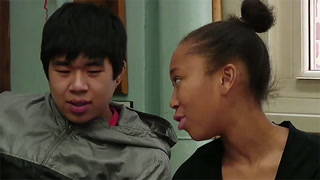
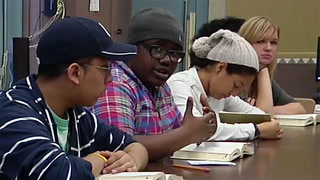
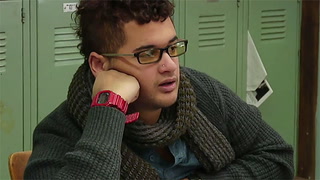
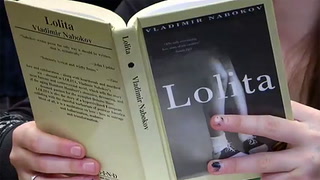
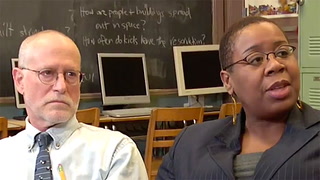
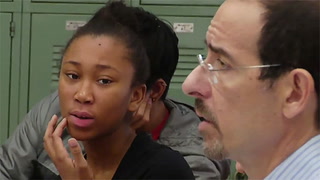
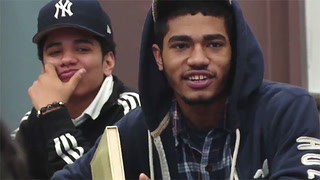
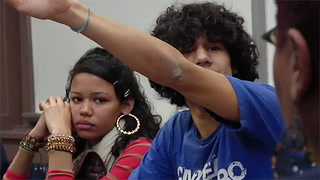
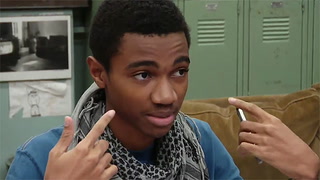
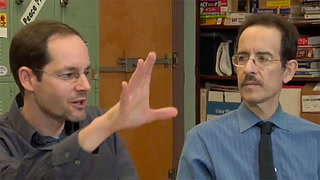
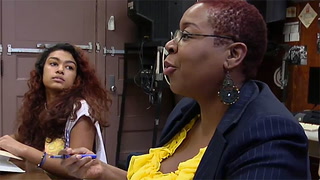
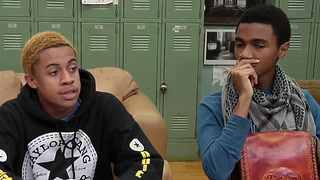








2 Comments
Robin Stricklin Dec 10, 2019 8:27pm
I use the inquiry teaching model in my high school classrooms. We have diversity of thought and diversity of color. I call by name and allow the students to share their opinions.
Colo NESCO Nov 12, 2014 3:52pm